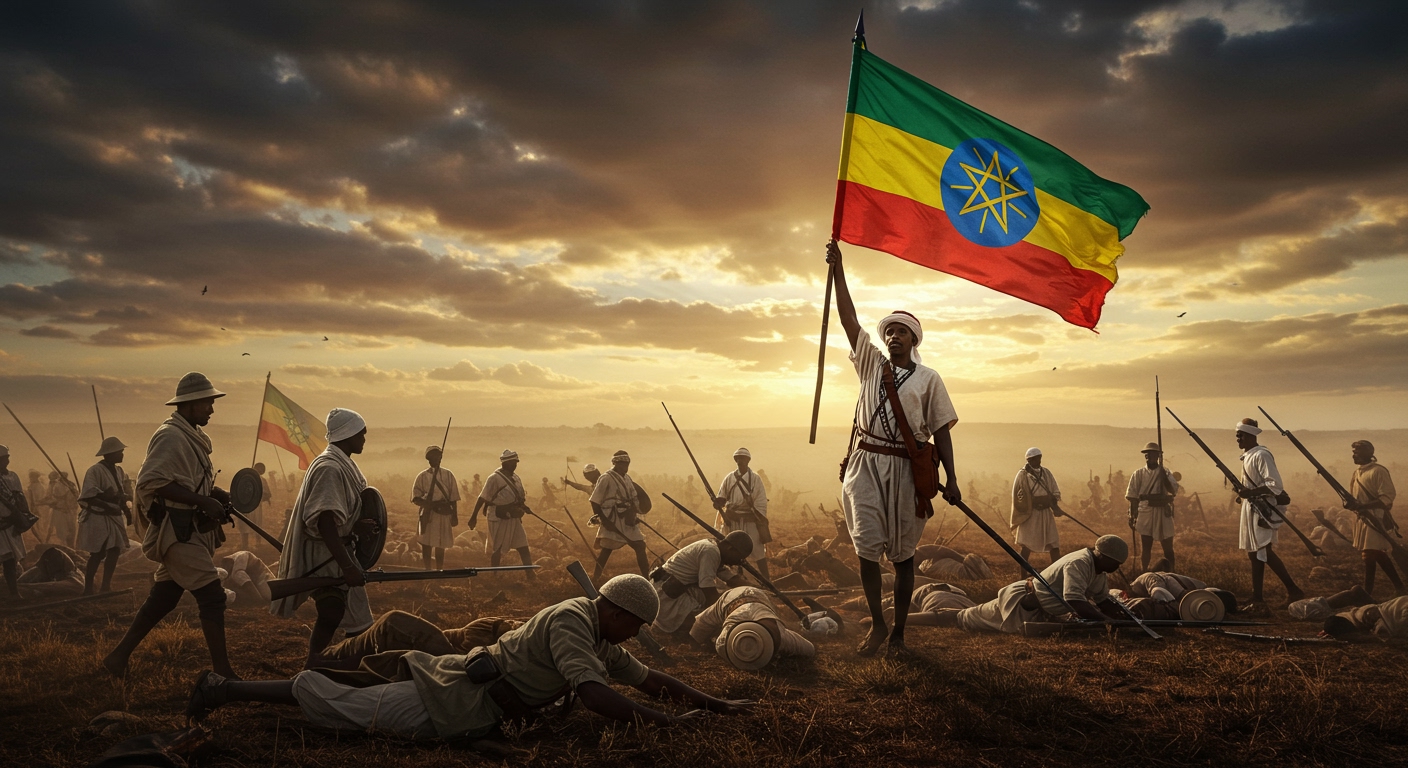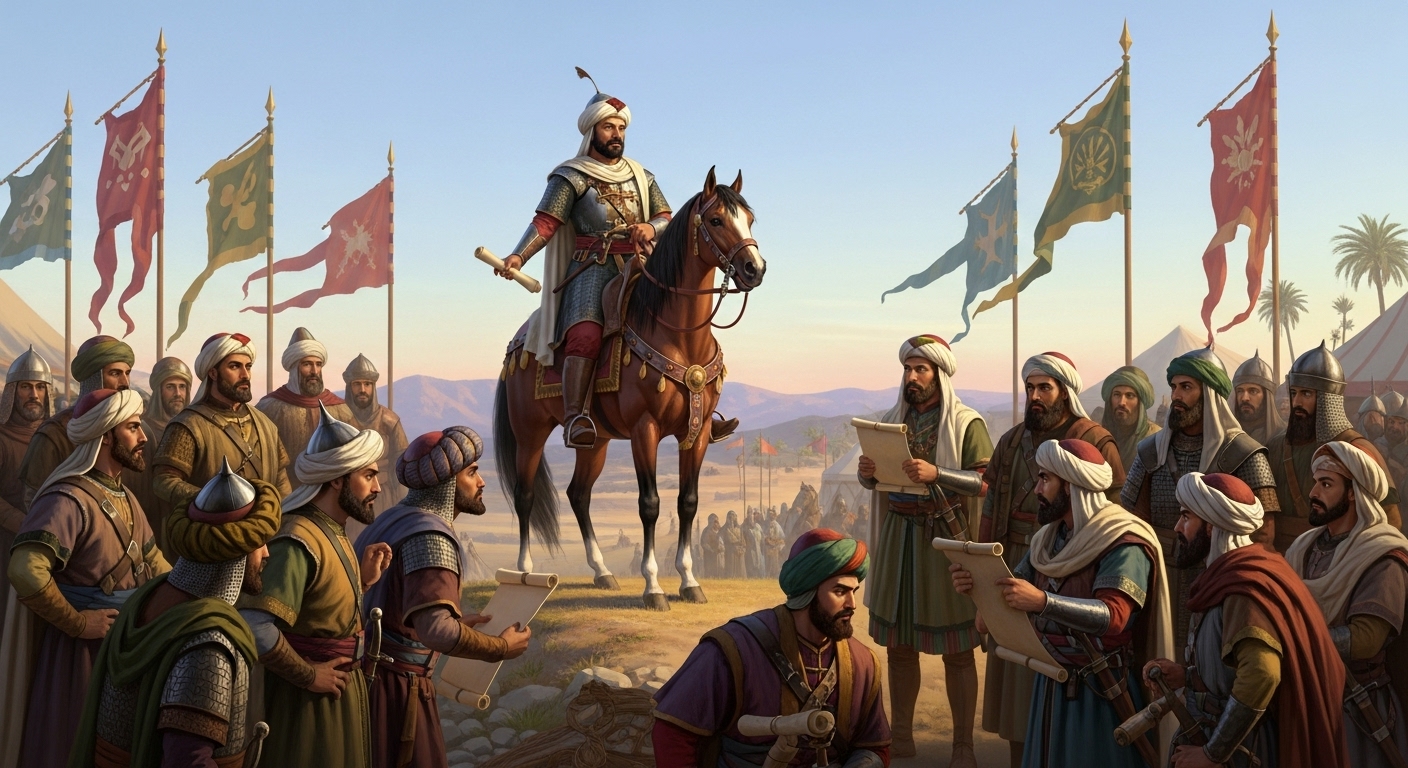The late 19th century witnessed Europe’s insatiable “Scramble for Africa,” a ruthless partitioning of the continent that left almost no indigenous sovereignty untouched. Yet, amidst this colonial fervor, one nation defied the odds and delivered a stunning rebuke to European imperial ambition: Ethiopia. The Battle of Adwa in 1896 stands as a monumental testament to African resistance, a decisive victory that not only secured Ethiopia’s independence but also sent reverberations across the globe, forever altering perceptions of African capabilities and inspiring anti-colonial movements for generations to come. This article delves into the intricate causes, the dramatic unfolding, and the enduring legacy of this pivotal historical event, focusing on the remarkable Ethiopian victory over Italy 1896.
I. Introduction: A Beacon in the Scramble for Africa
The popular narrative of 19th-century Africa often ends in colonial subjugation; Adwa, however, offers a powerful counter-narrative of triumph and defiance. This period, characterized by the “Scramble for Africa,” saw European powers carve up the continent, a process formalized by the Berlin Conference (1884-1885). While most African nations succumbed to foreign rule, Ethiopia, with its long history of independence and strategic location in the Horn of Africa, stood as a unique exception. The Ethiopian victory over Italy 1896 at the Battle of Adwa was a critical turning point in African history, preserving the nation’s sovereignty, inspiring Pan-Africanism, and shattering the myth of European invincibility.
II. The Looming Storm: Causes of the First Italo-Ethiopian War
Italy, a relatively latecomer to the colonial race, harbored strong desires to establish an empire in the Horn of Africa, particularly after securing Eritrea as a colony. Their ambitions set the stage for a direct confrontation with the ancient Ethiopian empire.
The Treaty of Wuchale (1889): A Treacherous Translation
At the heart of the conflict was the Treaty of Wuchale (or Uccialli), signed in 1889 between Italy and Emperor Menelik II. The treaty’s Article XVII became a flashpoint due to its dual interpretations: the Amharic version stated Ethiopia “could” use Italy for foreign affairs, implying a choice, while the Italian version insisted Ethiopia “must,” effectively making Ethiopia an Italian protectorate. Emperor Menelik II, upon discovering this critical discrepancy, vehemently denounced the treaty in 1893, reasserting Ethiopia’s full sovereignty. Despite this repudiation, Italy continued its territorial expansion, encroaching further into Ethiopian lands, an act of aggression that made war inevitable.
Ethiopian Preparations for War
Recognizing the grave threat, Emperor Menelik II embarked on astute diplomatic and military preparations. He strategically modernized his army by acquiring European weaponry – notably from Russia and France, Italy’s rivals – and worked to consolidate power among various Ethiopian factions [1]. A formidable figure in her own right, Empress Taytu Betul’s influence was profound. Her staunch anti-colonial stance, diplomatic acumen, and active role in mobilizing troops and resources, even commanding her own battalion, were instrumental in galvanizing national resolve. Crucially, the external threat posed by Italy fostered an unprecedented sense of national unity among Ethiopia’s diverse ethnic groups, uniting them against a common foe, a key factor in the eventual Ethiopian victory over Italy 1896.
III. The Road to Adwa: Escalation and Miscalculation
Initial skirmishes, such as the Battle of Coatit, saw some early Italian successes, leading them to advance further into Tigray Province. However, this early momentum masked deeper issues.

Italian overconfidence, fueled by prevalent European racist attitudes and a belief in their own military superiority over African forces, led them to severely underestimate Ethiopian capabilities. General Oreste Baratieri, the Italian commander, was aware of the immense logistical challenges of campaigning deep within Ethiopia. He initially hesitated to engage the numerically superior Ethiopian army but was pressured by Italian Prime Minister Francesco Crispi to take decisive action. Menelik II, however, employed masterful strategic maneuvering. He artfully lured the Italian forces deeper into Ethiopian territory, stretching their supply lines thin and away from their Eritrean bases, while using superior intelligence to his advantage, setting the stage for the dramatic showdown.
IV. The Battle of Adwa: A Masterclass in African Resistance (March 1, 1896)
The decisive confrontation occurred on March 1, 1896, near the town of Adwa in northern Ethiopia’s Tigray region, culminating in the historic Ethiopian victory over Italy 1896.
Setting the Scene
The opposing forces presented a stark contrast. The Ethiopian Army, a massive, unified force of 73,000–100,000 fighters, was well-armed, highly motivated, and intimately familiar with the rugged terrain. Key commanders included the resolute Menelik II, the courageous Empress Taytu Betul, Ras Makonnen, Ras Mikael, Ras Mengesha Yohannes, and other regional leaders. The Italian forces, comprising approximately 14,500–17,770 Italian and Eritrean askari troops, faced severe logistical issues, including shortages of food, water, and reliable maps, and were unfamiliar with the difficult mountainous terrain. They were led by General Oreste Baratieri, with brigade commanders such as Matteo Albertone, Giuseppe Arimondi, and Vittorio Dabormida.

Italian Tactical Errors
The battle began with a series of critical Italian errors. During a disorganized night march intended to surprise the Ethiopians, the Italian brigades became separated due to poor maps and the treacherous terrain. Colonel Albertone’s Eritrean brigade mistakenly advanced into established Ethiopian positions, believing they were seizing a strategic hill. This misjudgment of terrain and enemy positions proved costly. Compounding these errors were widespread logistical failures, which left the Italian forces without adequate supplies, food, water, and reliable communication, severely hampering their fighting effectiveness.
Ethiopian Strategic Brilliance
In contrast, the Ethiopian leadership demonstrated remarkable strategic brilliance. Generals like Ras Makonnen, father of Haile Selassie I, swiftly capitalized on the fragmented Italian columns, preventing them from regrouping. The unwavering resolve and motivation of Ethiopian fighters, including women who played crucial roles as water carriers, nurses, and morale boosters, were paramount. The Ethiopians made effective use of the terrain and their numerical superiority, executing coordinated counterattacks and encirclement maneuvers, known as “Afena,” which overwhelmed the isolated Italian lines.
The Course of the Battle
The battle unfolded with intense engagements across various fronts. Albertone’s brigade, despite fierce resistance, was eventually encircled and decimated. As other Italian brigades attempted to reinforce him, they too were met with overwhelming Ethiopian forces, their lines collapsing under coordinated assaults. The sheer numerical superiority and superior tactical deployment of the Ethiopian army ultimately led to the decisive victory. The Italian retreat turned into a rout, a testament to the powerful Ethiopian resistance.

Casualties
The casualties were stark. The Italian forces suffered devastating losses, with over 6,000 killed, approximately 3,000-4,000 captured, and nearly 1,500 wounded [2]. Ethiopian losses were also substantial, though proportionally smaller given their larger numbers, with estimates of over 5,000 killed and 8,000 wounded.
V. Immediate Aftermath: A New International Order
The immediate aftermath of Adwa sent shockwaves across Europe and Africa.
Italian Humiliation and Retreat
The devastating defeat led to the disorderly withdrawal of the Italian forces, marking a profound national humiliation for Italy. News of the disaster quickly reached Rome, sparking public outcry and protests against the costly colonial venture.
Political Repercussions in Italy
The defeat led to the immediate collapse of Prime Minister Francesco Crispi’s government. General Baratieri was subsequently court-martialed, although he was ultimately acquitted, the scandal highlighted the severe miscalculations of the Italian leadership.

The Treaty of Addis Ababa (October 23, 1896)
Just months after the battle, the Treaty of Addis Ababa was signed. Its key terms included the unconditional abrogation of the Treaty of Wuchale, with Italy explicitly recognizing Ethiopia as a fully sovereign and independent nation [3]. The treaty also established the border with the Italian colony of Eritrea. Significantly, Italian prisoners of war, who had been treated remarkably well under Menelik II’s orders, were repatriated in exchange for an indemnity from Italy.
Menelik II’s Consolidated Power
The Ethiopian victory over Italy 1896 immensely strengthened Menelik II’s rule, consolidating his power and facilitating the further modernization and unification of Ethiopia, securing its place on the international stage.
VI. The Enduring Legacy of Adwa: A Global Impact
The Battle of Adwa’s legacy extends far beyond Ethiopia’s borders, fundamentally altering the course of African and global history.
Preservation of Ethiopian Sovereignty
Ethiopia remained the only African nation to successfully resist European colonization during the “Scramble for Africa,” a profound historical anomaly that solidified its unique status as a symbol of freedom on the continent. This African resistance to colonialism was a beacon.
Inspiration for Anti-Colonial Movements
Adwa became an extraordinarily powerful symbol and a “rocket booster” for Pan-Africanism and African nationalism. It inspired liberation struggles across the continent and among the African diaspora, demonstrating that European powers were not invincible [4]. It fundamentally challenged prevailing racist notions of European superiority and African inferiority, proving that a united, well-led, and determined African force could overcome a technologically superior European army. Ethiopia’s status as a free African nation served as a constant source of hope and pride for oppressed peoples worldwide, a true “beacon of liberty.”

Impact on International Relations
The victory forced European powers to take African states more seriously, altering diplomatic engagement and forcing a reassessment of their colonial strategies.
A Precedent for Resistance
The Battle of Adwa provided a concrete precedent for future resistance movements, demonstrating that a united people could triumph against seemingly insurmountable odds. Its significance, often referred to as the Battle of Adwa significance, is immeasurable.
Future Echoes
The spirit of Adwa continued to resonate. Decades later, during the Second Italo-Ethiopian War (1935-1936) under Mussolini’s fascist regime, a later attempt to “avenge” Adwa, the memory of the Ethiopian victory over Italy 1896 still inspired fierce resistance against the Italian invaders, even in the face of overwhelming modern weaponry [5].
VII. Conclusion: Adwa’s Timeless Resonance
The Battle of Adwa, forged from Italy’s colonial ambitions, a treacherous treaty, and Ethiopia’s strategic brilliance and unwavering unity, resulted in a decisive Ethiopian victory over Italy 1896. This unparalleled triumph preserved Ethiopia’s independence and reshaped global perceptions of African capabilities. Adwa’s unparalleled importance in African and global history as a symbol of self-determination, unity, and successful resistance against colonialism continues to be celebrated not just as a historical event, but as an enduring lesson in courage, strategy, and the power of a people united in defense of their freedom.



